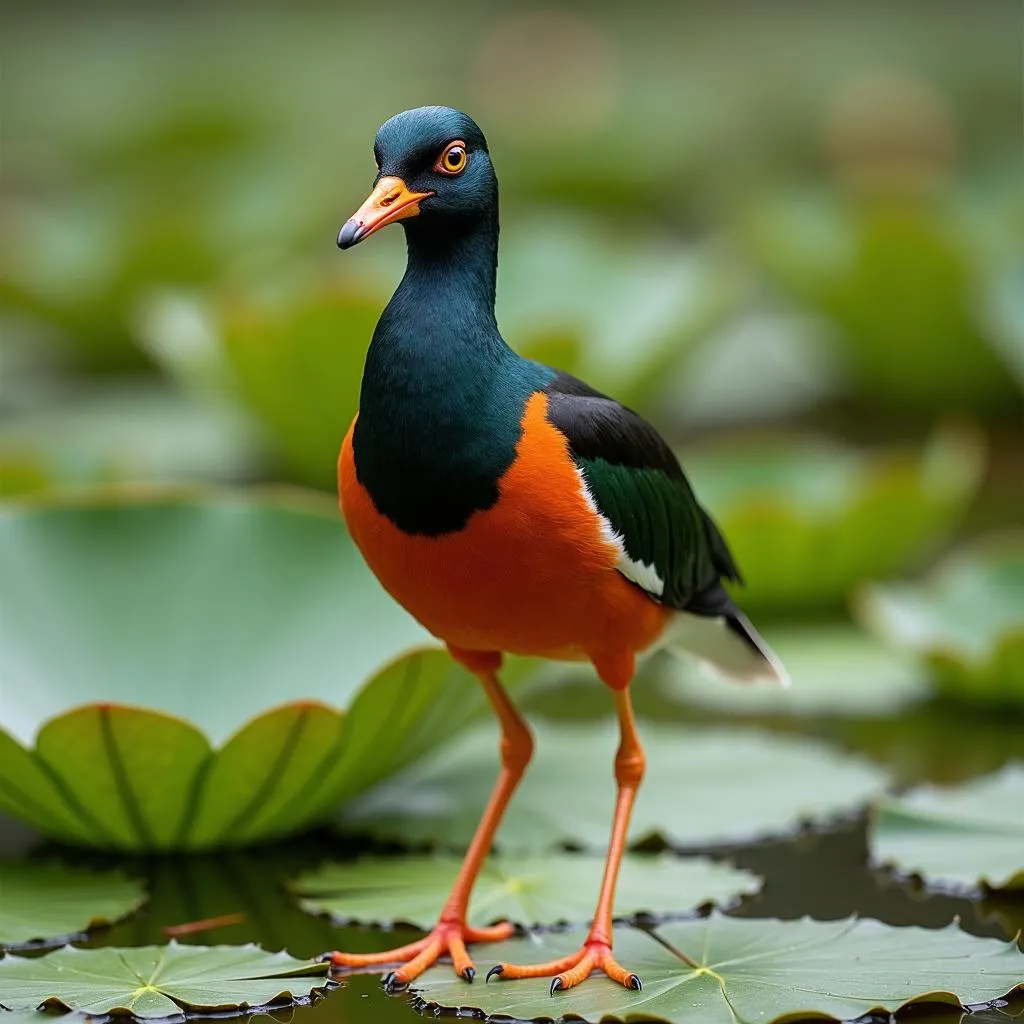African Animals in Their Natural Habitat: A Safari Through the Wild
African Animals In Their Natural Habitat offer a spectacle of biodiversity unlike anywhere else on Earth. From the vast savannahs to dense jungles and arid deserts, the continent pulsates with life, showcasing a breathtaking array of creatures adapted to their unique environments. This article delves into the fascinating world of African wildlife, exploring their behaviors, habitats, and the challenges they face in the 21st century.
Exploring the Savannah’s Majesty: Lions, Elephants, and More
The African savannah, a vast grassland ecosystem, is home to some of the world’s most iconic animals. Lions, with their regal manes and powerful roars, reign as apex predators. Their social structures and hunting strategies are a marvel of nature. Elephants, the largest land animals, roam the savannah in matriarchal herds, their intelligence and complex social interactions captivating observers. Giraffes, with their towering necks and gentle nature, browse the acacia trees, adding a touch of elegance to the landscape. Observing these animals in their natural habitat, interacting and thriving, is a truly humbling experience. You can learn more about the African elephant on this page: African elephant species.
These are just a few of the many remarkable creatures that call the savannah home. Zebras, wildebeest, cheetahs, and hyenas, each with their unique adaptations and roles in the ecosystem, contribute to the rich tapestry of life on the African plains.
Navigating the Lush Jungles: Gorillas, Chimpanzees, and Forest Elephants
Beyond the open savannah, Africa’s jungles offer a different kind of wildlife experience. These dense forests, teeming with life, provide refuge for a variety of primates, including gorillas and chimpanzees. Observing these intelligent creatures in their natural environment, interacting with their families and navigating the complex social dynamics of their troops, is a profound privilege. Forest elephants, smaller than their savannah counterparts, also inhabit these jungles, playing a crucial role in seed dispersal and forest regeneration. Find more about aquatic African animals here: African aquatics.
The jungle also teems with a diverse array of birdlife, from brightly colored parrots to elusive forest eagles. Snakes, insects, and amphibians contribute to the jungle’s rich biodiversity, creating a complex web of life that is still being explored and understood.
Adapting to Arid Lands: Desert Foxes, Camels, and Oryx
The deserts of Africa, seemingly harsh and unforgiving, are also home to a surprising array of wildlife. Desert foxes, with their large ears for heat dissipation, have adapted to the extreme temperatures and scarcity of water. Camels, known as the “ships of the desert,” are perfectly suited to this arid environment, their humps storing vital fat reserves. Oryx, with their long, straight horns and ability to conserve water, are another example of the remarkable adaptability of desert wildlife.
What are some common threats to African animals in their natural habitat?
Habitat loss, poaching, and climate change are some of the most significant threats facing African animals. Human encroachment on wildlife habitats, driven by agriculture and development, continues to shrink the space available for these animals to thrive. Poaching, driven by the illegal wildlife trade, decimates populations of elephants, rhinos, and other valuable species. Climate change, with its changing weather patterns and increasing droughts, further exacerbates these challenges. Let’s discuss an interesting board game here: Adventurous African safari board game.
Protecting Africa’s Wildlife for Future Generations
Protecting African animals in their natural habitat requires a concerted effort from governments, conservation organizations, and local communities. Efforts to combat poaching, protect habitats, and mitigate the effects of climate change are essential for ensuring the survival of these magnificent creatures for future generations.
Dr. Anika Moti, a renowned wildlife biologist specializing in African ecosystems, emphasizes the urgency of the situation: “The time to act is now. We must work together to protect these incredible animals and the habitats they depend on before it’s too late.” Echoing this sentiment, Dr. Jabari Olusanya, a leading conservationist, adds: “Conservation is not just about saving animals; it’s about preserving the delicate balance of our planet’s ecosystems.”
In conclusion, African animals in their natural habitat represent a treasure trove of biodiversity, a legacy that must be protected. From the majestic lions of the savannah to the elusive gorillas of the jungle and the resilient creatures of the desert, these animals enrich our planet and inspire awe. By working together, we can ensure that these magnificent creatures continue to thrive in their natural homes for generations to come.
FAQ
- What is the biggest threat to African wildlife? Habitat loss and poaching are the biggest threats.
- Where can I see African animals in their natural habitat? A safari in a national park or reserve is the best way.
- What is the largest land animal in Africa? The African elephant.
- What is the fastest land animal in Africa? The cheetah.
- What are some endangered animals in Africa? Rhinos, gorillas, and certain species of elephants are endangered.
- How can I help protect African wildlife? Support conservation organizations and educate yourself about the issues.
- What is the role of ecotourism in protecting African wildlife? Ecotourism can provide economic incentives for conservation.
You might also be interested in learning more about the African Congo bird: African congo bird. We have a wealth of information on our website about African wildlife and conservation efforts.
Need help planning your African adventure or learning more about wildlife conservation? Contact us 24/7: Phone: +255768904061, Email: [email protected] or visit us at Mbarali DC Mawindi, Kangaga, Tanzania. Our team is ready to assist you.

